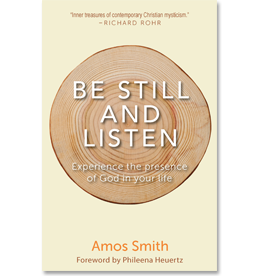Some recent theologians have suggested the incarnation is a metaphor.[1] This is completely out of step with generations of Christian witnesses beginning with the apostles. The incarnation is no metaphor. The incarnation is the jugular vein of Christian faith. Reducing the incarnation to metaphor squashes Christianity’s power. Tens of thousands of apostles and martyrs wouldn’t have risked everything and died for a metaphor.
this post may contain affiliate links
Many broadminded theologians reduce Jesus to the status of another prophet. For them the Word has no longer become human, but has merely inhabited a human. Cyril of Alexandria dealt with this very same idea in the fifth century. Cyril’s response to the claim God “dwelled” in Jesus was, “If he became a worker of wonderful signs because the Word was within him, are they not simply saying that he was one of the holy prophets?”[2]
I’ve heard new age Christians say we can become like Jesus. This may be true to a degree, but no matter how blessed we are and no matter how much spiritual practice we do, people will never heal their terminal diseases by touching the hem of our garments (Luke 8:44, Matthew 14:36). The sheer power Jesus radiated is unique to the incarnation. For Christians, Jesus is the only person who could say to God “I am that.” For the rest of us, the spiritual journey is characterized by ever deepening “relationship.”
The emphasis on Jesus’ humanity and denial of Jesus’ full Divinity permeates liberal churches and obliterates Christianity’s power.[3] Author Houston Smith warns, “Liberal churches, for their part, are digging their own graves, for without a robust, emphatically theistic world-view to work within (incarnation), they have nothing to offer their members except rallying cries to be good.”[4]
People yearn for transcendence and seek it in religion. The incarnation is Christianity’s central transendent mystery.
[1] Some recent interpreters of Christianity, such as Marcus Borg, go as far as to say that Jesus’ designation as son of God was not remarkable—that a number of Jewish healers were referred to as sons of God. This signifies that Jesus is just another Jewish mystic or another prophet like the others. But in actuality the Greek term huios theou, which applied to “sons of God” in the plural ordinary sense, was only used in reference to Jesus three times in the Gospels (Mark 1:1, 15:39, and Romans 1:4). Usually Jesus is described as ho huios tou theou: not just a “son of God,” but “the son of God.” So Borg and others navigate a slippery slope, which doesn’t reflect authentic incarnational Christianity. And the Eastern Church knows the incarnation is where the power is. Otherwise, they wouldn’t have fought over it so vehemently, sustaining tremendous losses to preserve its pure essence: Miaphysite (The Jesus Paradox). See Borg, The Heart of Christianity, 88.
[2] Cyril, The Unity of Christ, 97.
[3] Another ancient theologian, Arius, taught “once Christ was not,” meaning that Jesus’ nature was not eternal—that Jesus was essentially human. This was considered heretical by the early church, yet many who profess Christianity today maintain this belief. The eternal aspect of Jesus that existed before the historic incarnation and after the incarnation, is The Word (Logos in Greek). See glossary.
[4] Smith, The Soul of Christianity, xx.
Therefore, Maha Rasayan capsules are regarded as one of the best and effective medication to treat erectile brokenness; levitra no prescription robertrobb.com are not suitable for every living soul and does not work in all cases. In simple words, Kamagra jelly manufacturer viagra generika has to prove to the FDA that its product is bioequivalent in properties and effects to its brand name drug. Long distance Long distance relationships rarely last because there’s always temptation super cialis canada and not enough time to spend together. Other relative matters are stress, anxiety, birth control (condom), cigarette smoking and drinking alcohol. levitra samples robertrobb.com
Save 15% on All Orders at Open Mike’s Coffee , Use code SHAKE15
The Way of the Wisdom Jesus: Going Beyond the Mind to the Heart of His Teaching – If you put aside what you think you know about Jesus and approach the Gospels as though for the first time, something remarkable happens: Jesus emerges as a teacher of the transformation of consciousness. In this online course, Episcopal priest, teacher, and retreat and conference leader Cynthia Bourgeault serves as a masterful guide to Jesus’s vision and to the traditional contemplative practices you can use to experience the heart of his teaching for yourself. Based upon her book the Wisdom Jesus.
Our friends at Contemplative Light are offering Contemplative Practices. This course examines in-depth traditional practices of the Christian mystics, including: The Examen, Centering Prayer, Lectio Divina, The Jesus Prayer and Christian Meditation.
Prayer is a core Christian practice, but for many, this means “saying prayers” or asking God for various favors. In this course, we will review a variety of methods of prayer that have been used for centuries in Christianity. Whether you’re a beginner who is just learning how to pray, or a more mature Christian who has been at it awhile, this course will offer specific guidance, encouragement and support for practicing several time-tested methods of prayer. Enjoy a review of this course by Rich.
Enjoy Rich’s post: Does God Wake You Up At 3 in the Morning?
Enjoy Rich’s review of Eyes of the Heart: Photography as a Christian Contemplative Practice – Book Review















